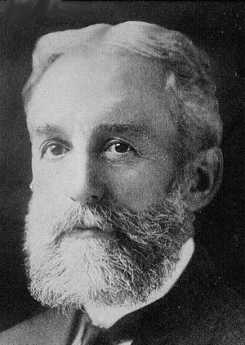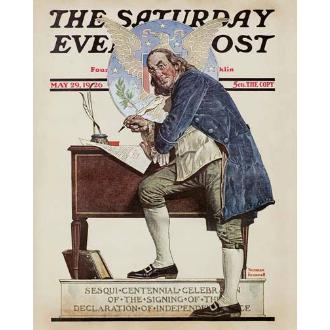Related Topics
Curtis
To Cy Curtis, magazines were just vehicles for advertisers. In fact, his mags taught former farmers how to manage urban life, more or less accidentally creating a focus for American books, authors, politics and literature. The fall of his empire teaches the lesson that antitrust laws against vertical integration are probably unnecessary.
Curtis: The Business Plan

|
| Cyrus Curtis |
Years ago, Cyrus Curtis maintained you could tell who read a magazine by simply looking at the ads. In his view, a magazine was a means for advertisers to reach selected customers; the text was just baited. Hearing this offensive view, I immediately picked up a high-brow glossy magazine, one with rather advanced literary pretensions, and flipped through its ads. They consisted entirely of ads for cigarettes and liquor. In a flash, I got entirely new insight about that magazine, and maybe an important truth about high-brow readers.
Well before World War I, Cy Curtis had grasped the idea that the real revenue of magazines could be advertising revenue, and the secret of rich revenue was getting potential customers to read the thing. Giving it away free wasn't good enough, you even had to be willing to bribe people to read. The form of bribing people was to provide high-quality reading material at less than cost. Curtis was a businessman, not an editor. His business plan was to hire good editors and then leave them alone. If circulation numbers increased, that must be a good editor.
For many years, the Post by that definition had good editors. Its circulation rose into the millions, followed by advertising revenue in the hundreds of millions. It happens that the editorial mix which produced this result was a combination of first-rate fiction and interesting articles built around the theme of glamorous home improvements (for women) or how to make your way as a small business entrepreneur (for men readers). The Post was a how-to manual for a population moving off the farm, into the towns. If it were still published today, it would be called the Bible of the "red" states, the core of the Republican party. That's what the picture of Ben Franklin on the masthead was meant to signify, not the rather tenuous connection with Franklin printing press.

|
| Ben Franklin on the Cover |
In retrospect after the glory days of the Post were over, there developed a general agreement that what killed the magazine was television. Free television; with huge expenditures on entertainment programs. Television is a way of funneling gobs of money from national commodity advertising into the pockets of the entertainment industry. In effect, show biz robbed publishing biz and Hollywood robbed the libraries and bookstores. New York and Hollywood robbed Philadelphia and Boston. And the brokers for this transaction were the advertising agencies of Madison Avenue.
That how it may seem in retrospect, but at the time it was more personal. It seemed as though Life and Look beat the Post, when in fact they just lasted a couple years longer. It looked as though single-subject magazines beat out general-topic magazines, but notice that PC Magazine rose to a thousand fat pages an issue in the 1980s and then fell to its present fifty skinny ones.
A particular source of bitterness lay in the fact that during the last ten years of its life, the circulation of the Saturday Evening Post actually doubled, far higher than it had ever been. If circulation was what advertisers wanted, where were they? The editors of the Post felt they had been betrayed by a conspiracy of a handful of two-martini advertising agents in New York, and it must be admitted there was a wide cultural divide between Sunset Boulevard and Walnut Street, between Greenwich Village and Bucks County. Between the flower children and the gardening clubs. And even, we have to say it, between the Ds and the Rs.
It took almost eighty years for it to happen, but Cyrus Curtis was eventually hoisted on his own petard. No amount of circulation, no level of editorial excellence, was going to rescue a magazine when its advertisers got steered to serving a different sort of free lunch in the barroom. The success of a magazine did not depend on the management of the magazine, it depended on the tribal convictions of the advertisers. The producers of operas, symphonies, and professional sports need to be wary of the same trap; even with a full house, the performing arts cannot meet their expenses from ticket sales, alone. In the cruel arithmetic of economic survival, it may not completely matter how good the artistic performance is.
Originally published: Wednesday, June 21, 2006; most-recently modified: Wednesday, May 22, 2019